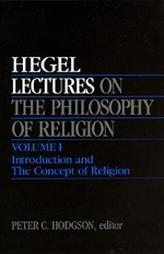What do you think?
Rate this book


494 pages, Paperback
First published January 1, 1832
The Fathers of the Church essentially understood that the premise of their theology is Religion with a thinking, understanding consciousness. The Christian Church owes the first beginnings of the content of Christian doctrine to their philosophical education... but this is not examined.. Yes, this has happened [denial of the origins of their beliefs] not only on the side of the Enlightenment but even on the side of the more pious theologians.
The nuances of the Trinity were introduced into Christian doctrine by the Alexandrian school, by the Neo-Platonists, the latter being a component of the former... yet that doctrine is the fundamental determination of the Christian religion.
In the Protestant Church, the Bible was the essential basis of the doctrine... it was thought that exegesis was only to take up the thoughts of the Bible. But in fact, the intellect had established its views and thoughts beforehand, and then it was seen how the words of Scripture could be explained according to them... Because this exegesis consults reason, it has come about that a so-called theology of reason has come into being, which is opposed to that doctrinal concept of the church, partly by itself, partly by that which it opposes. Here, exegesis takes over the written word, interprets it, and pretends to assert only the understanding of the word, to want to remain faithful to it... But whether the Bible is taken as a basis of Doctrine as an excuse or with genuine seriousness, the nature of interpretive explanation implies that pre-conceived concepts assert themselves in the process of interpretation... It is true that the meaning of the word is to be indicated, but to indicate the meaning is to draw the meaning out into consciousness, into the imagination, and the imagination determined in a different way then asserts itself in the presentation of what the meaning is supposed to be. Even in the representation of a philosophical system already developed in itself, e.g. of Plato or Aristotle, it is the case that the representations turn out differently according to the already determined mode of a conception of those who undertake them. From Scripture, therefore, the most opposite opinions have been exegetically proved by theology, and thus this so-called Holy Scripture has been turned into a disguise for heterodoxy. All heresies have invoked the Scriptures.